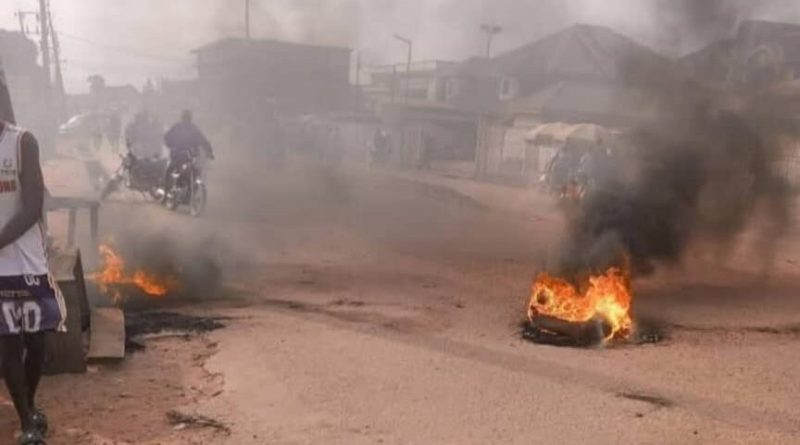How night attacks sparked twin protests in Nasarawa, Benue
Two communities in north-central Nigeria erupted in protest on Friday following overnight attacks that left at least six people dead and several others missing in Nasarawa and Benue states.
In Sarkin Noma, a farming settlement in the Keana Local Government Area of Nasarawa State, youths blocked the Lafia–Makurdi highway after suspected armed herders reportedly invaded their community, killing two men and abducting one elderly resident.
In neighbouring Benue State, commercial motorcycle riders—popularly known as okada—shut down the town of Gboko in a similar outcry over the killing of four of their colleagues by gunmen who also stole their motorcycles.
The two incidents indicate deepening frustration in rural and semi-urban areas over rising insecurity and slow government response to recurrent attacks.
Nasarawa: Youths block highway after midnight killings
In Sarkin Noma, residents told reporters that the attackers stormed the village between 11:30 p.m. and midnight, shooting sporadically.
A youth leader, Ogu Iliya, told reporters that about fifty gunmen believed to be herders raided the area, killing two young men and abducting an elderly man whose whereabouts remain unknown.
“This is about the twelfth attack on our community in recent times. We live in fear. Anyone who returns late from the market risks being kidnapped or killed,” Mr Iliya said.
Angered by the killings, hundreds of youths carried the bodies of the victims to the Lafia–Makurdi highway at dawn, using them to block the busy road. Vehicular movement was halted for hours as protesters demanded immediate intervention from the federal and state governments.
The Police Public Relations Officer in Nasarawa, Ramhan Nansel, confirmed the incident. He said the Commissioner of Police, Shettima Mohammed Jauro, had led a team of security personnel to the area to restore calm.
Benue: Okada riders shut down Gboko over killings

In Gboko, Benue State’s second-largest town, hundreds of okada riders also took to the streets to protest the overnight murder of four of their members by gunmen.
The attackers reportedly killed the riders, stole their motorcycles, and fled under the cover of darkness.
As early as 6 a.m., protesters gathered at major junctions across Gboko, chanting solidarity songs and lighting bonfires. The demonstration disrupted business activities, forcing many residents to stay indoors for fear of violence.
One of the protest leaders, who declined to be named, said the killings had become routine.
“Every week we lose someone. They kill our members and take away their bikes. Some of us are graduates doing this work to survive. We can’t keep quiet any longer,” he said.
The Chairman of Gboko Local Government Area, Torseer Yina, condemned the attack and appealed for calm. In a statement issued through his media aide, Jacob Ukpi, Mr Yina said he had convened an emergency security meeting to track down the killers.
He also condoled with the Benue Motorcycle Association and families of the victims, assuring them that “the perpetrators will be brought to justice.”
The Benue Police spokesperson, Udeme Edet, told reporters that normalcy had returned to the town and that an investigation into the killings was underway.
Pattern of rural insecurity
Both protests mirror a worsening pattern of violent attacks on rural dwellers and informal workers across north-central Nigeria — communities trapped between banditry, farmer-herder conflict, and weak policing.
Security experts say that without improved intelligence sharing and stronger community policing, the region could continue to experience deadly reprisals and breakdown of trust in the authorities.

For residents like those in Sarkin Noma and Gboko, Friday’s demonstrations were not just an outburst of anger, but a desperate cry for protection in regions where nightfall often signals danger.


